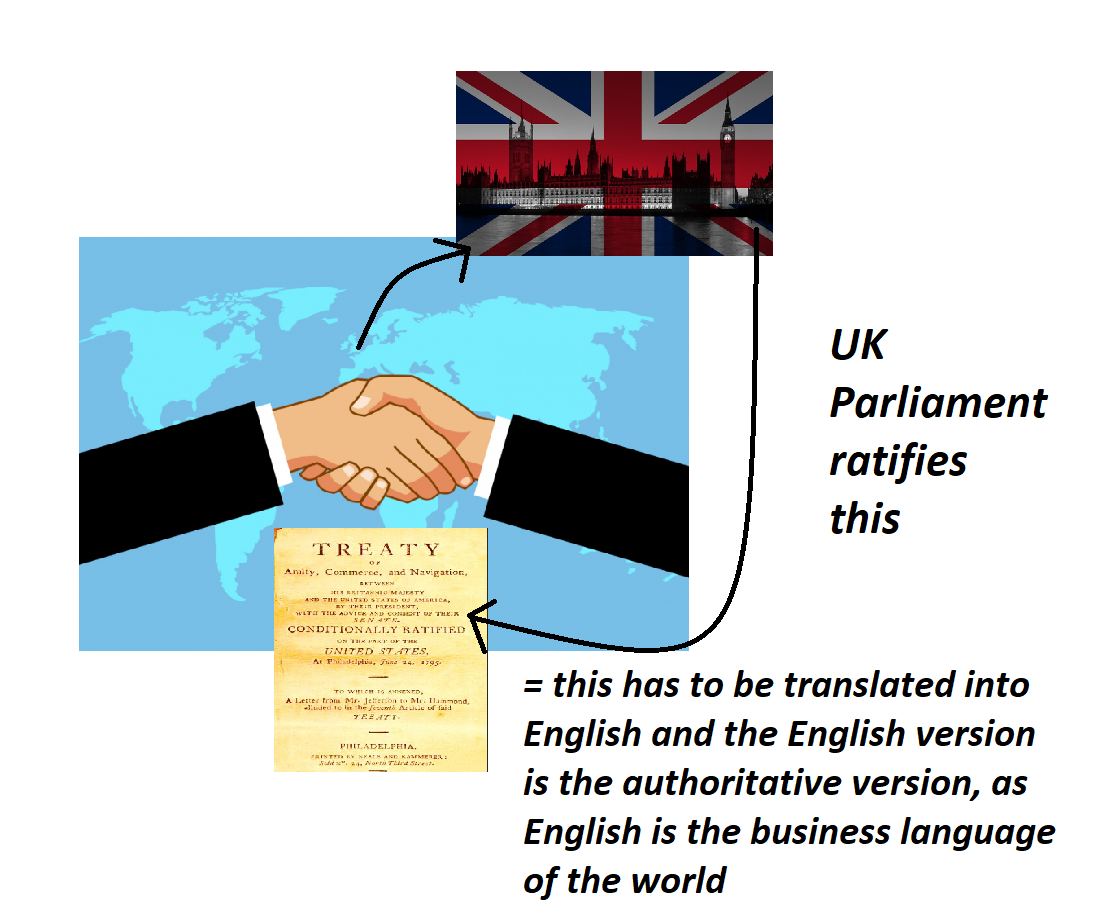James Buchanan and Co Ltd v Babco Forwarding and Shipping UK Ltd [1978] AC 141
Citation:James Buchanan and Co Ltd v Babco Forwarding and Shipping UK Ltd [1978] AC 141
Rule of thumb:When there are ratified international treaties in different languages which people are disputing, which translation is to be taken? Both to try to make them link together but if in doubt it is the English translation which prevails, as this is considered the business language of the world.
Background facts:
The basic facts of this case were that a consignment of whiskey was stolen when it was being delivered to its destination. This matter was regulated by a ratified international treaty which had different translations of it – French and English in this case.
Judgment:
The Court affirmed that the correct approach is that the relevant provisions in both must be translated with dictionary definitions. Then they both have to be considered before deciding how the matter is to be dealt with. The Court did affirm that the English version is probably the most authoritative due to the fact that the English language is the one typically used by most business people across the world.

Ratio-decidendi:
‘I think the correct approach to interpret the English text, which after all is likely to be used by many others than British businessmen, appropriate for the interpretation of an international convention, unconstrained by technical rules of English law, or by English precedent, but on broad principles of general acceptance... Moreover, it is perfectly legitimate in my opinion to look for assistance, if assistance is needed, to the French text. This is often put in the form that resort may be had to the foreign text if (and only if) the English text is ambiguous, but I think this states the rule too technically. As Lord Diplock recently said in this House the inherent flexibility of the English (and one may add, any) language may make it necessary for the interpreter to have recourse to a variety of aids. There is no need to impose a preliminary test of ambiguity’, Lord Wilbeforce at 152
Warning: This is not professional legal advice. This is not professional legal education advice. Please obtain professional guidance before embarking on any legal course of action. This is just an interpretation of a Judgment by persons of legal insight & varying levels of legal specialism, experience & expertise. Please read the Judgment yourself and form your own interpretation of it with professional assistance.

